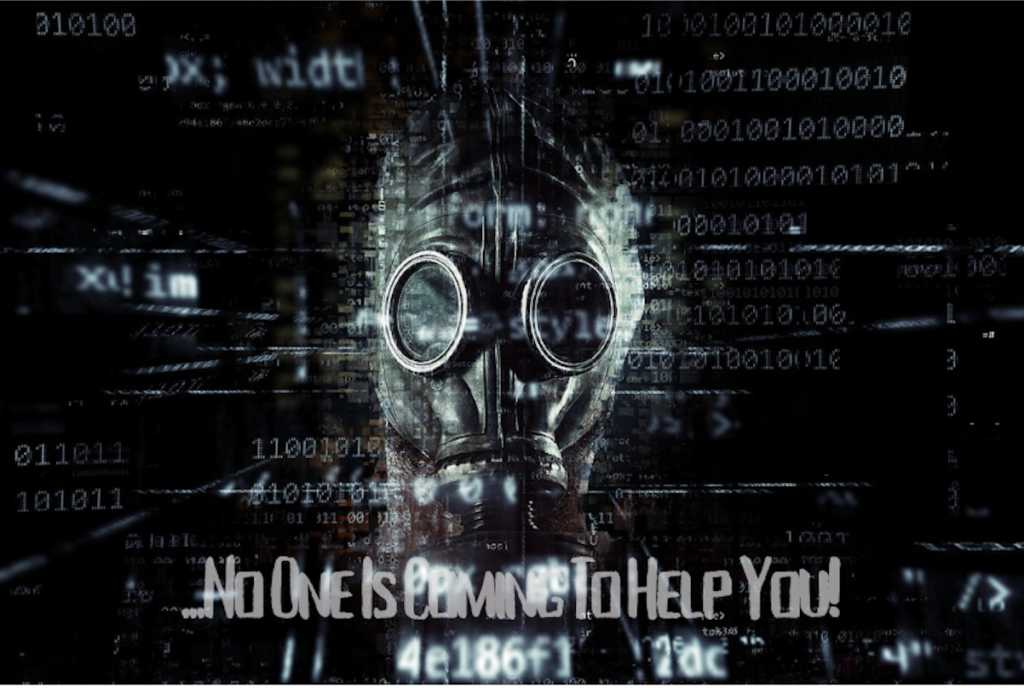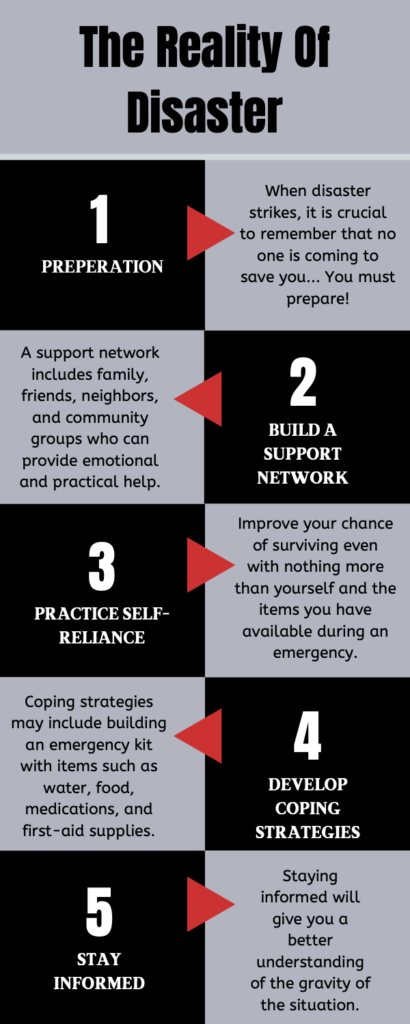
The Reality of Disasters:
When a disaster strikes, it is crucial to remember that no one is coming to save you. That means you are responsible for preparing for the worst and ensuring you know what to do in a disaster. An excellent place to start is to understand the risks of potential disasters in your area. Knowing this can help you create a better plan. Assessing the disaster risks in your area may seem intimidating. Still, it is essential to protect yourself and those you love. Taking these precautions now could mean the difference between life and death.
Preparation for Disasters:
Once assessing the potential risks of disasters in your area, it is vital to prepare for the worst. During the preparation stage, you should take a home inventory and create a plan for each household member. Make sure to have enough supplies, such as a first aid kit, non-perishable food items, and water in plastic containers or bottles. Have an emergency contact list with information about family members and local hospitals or medical contacts.
Build a Support Network:
Having a support network is essential to being prepared for any disaster. A support network includes family, friends, neighbors, and community groups who can provide emotional and practical help. Start by creating an emergency contact list of people you could call on if something happens. This list could include family members, neighbors, and close friends. It would help if you also looked into joining local organizations like faith-based or civic groups that can assist in times of crisis. Additionally, staying connected with your regional government offices or agencies can give you access to valuable resources, such as information about evacuation plans and shelter locations in the event of a disaster. Finally, having a plan for communicating with everyone in your support network during an emergency is essential so that everyone is informed and can coordinate their response quickly and efficiently.
Practice Self-Reliance:
Self-reliance is critical when it comes to being prepared for a disaster. Practicing self-reliance means not relying on anyone else to save you in an emergency. Instead, you must take steps to prepare on your own. You are creating a plan for what to do in various situations, setting up necessary supplies like food and water, knowing the safest locations within your home or neighborhood, and staying informed about current events. Being able to think on your feet and act quickly is also crucial so that if you need to evacuate or shelter in place, you can do so without outside help. Additionally, it’s beneficial to know basic survival skills such as first aid, how to start a fire without matches, how to find safe drinking water sources in the wild, etc. Knowing these things can help ensure that you can improve your chance of surviving even with nothing more than yourself and the items you have available during an emergency.
Develop Coping Strategies:
Developing coping strategies for the aftermath of a disaster is essential; this includes planning for the immediate days following, knowing where to go if you must leave your home, and assessing what resources are available. Being prepared is the key to coping when bad things happen.
Coping strategies may include building an emergency kit with items such as water, food, medications, and first aid supplies that could be useful in an emergency. When evacuating or relocating during disasters like a hurricane, tornado, chemical spill, or wildfire, know your destination so you do not get stranded. If traveling by car or public transportation is impossible, contact local organizations that provide transportation services during emergencies.
Lastly, assess what resources are available. Contact local government offices to find out what assistance may be provided post-disaster and inquire about any social service programs that provide financial help after a disaster. Knowing what resources are available will give you more insight into how best to cope with the aftermath of a disaster.
Stay Informed During Disasters:
Staying informed will give you a better understanding of the gravity of the situation. Pay attention to local and national news sources and emergency alerts or warnings issued by your local government. Make sure you sign up for any alert systems available in your area to notify you of any potential hazards. It is also helpful to research how neighbors in similar areas reacted during past events; this helps you create an effective action plan for yourself and your family if disaster strikes.
Conclusion: Be Your Hero:
It is easy to think that someone will eventually come and save the day when a disaster happens. But in reality, no one else can be relied upon to help you out of a problematic situation but yourself. When being your hero, thinking ahead and planning for potential disasters is crucial. Remind yourself that you have the power within you to take action and make things better rather than feeling helpless in the face of adversity. The more prepared you are before an emergency occurs, the easier it will be for you to act—so don’t wait until it’s too late! Be your hero today by ensuring your safety, and the safety of those you love, and well-being in any situation.
